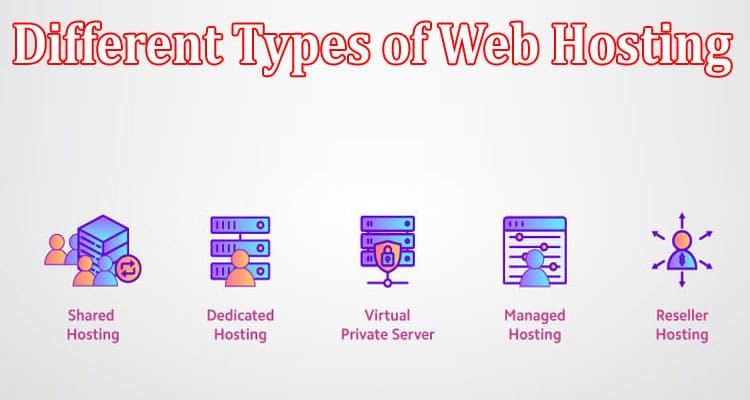What are the Different Types of Web Hosting?
With various types of web hosting available, it’s important to understand their differences and choose the most suitable option based on individual needs. This article will look at the types and their pluses and minuses. Before getting to that, here’s how to choose the best hosting for your needs:
Website Size and Traffic
If your website is small and doesn’t get too many visitors, you can go for cheaper options like shared hosting or managed WordPress hosting. But if your site is larger and gets a lot of traffic or uses resource-intensive applications, you might need to consider VPS or dedicated servers.
Resource Requirements
Think about what your website needs in terms of hardware like CPU, RAM, and disk space. VPS and dedicated servers provide dedicated resources, while shared hosting offers limited resources. Cloud hosting is very scalable, so you can easily increase or decrease services as needed.
Budget
Determine your budget for web hosting services. Shared hosting is typically the budget-friendliest option, followed by VPS hosting.
Shared Hosting
A popular and budget-friendly option for beginners and small businesses is shared hosting. It means multiple websites all use the same server and its resources. It provides limited control and resources, as the server’s CPU, RAM, and disk space are divided among the hosted websites.
Virtual Private Server (VPS) Hosting
VPS hosting divides a simulated servers from a single hardware server, giving each website its own dedicated set of resources. This offers better efficiency, flexibility, and control compared to shared hosting. Each VPS operates independently and provides users with root privileges, allowing them to install custom software and adjust the server’s settings according to their needs.
VPS hosting is suitable for growing websites that require more resources and control. If you’re struggling to decide, you won’t go wrong with GreenGeeks, who has reliable VPS, WordPress hosting, reseller, and WooCommerce eco-friendly hosting.
Cloud Hosting
In cloud computing, websites are hosted on a network of interconnected servers. This setup offers scalability, flexibility, and stability because resources are spread across multiple servers. If one server experiences issues, the website can rely on resources from other servers in the network. Cloud hosting’s impressive scalability allows websites to quickly increase capacity to handle changes in traffic. It’s an excellent choice for sites that require high availability or experience unpredictable spikes in traffic.
Dedicated Hosting
With dedicated hosting, a complete physical server is dedicated to a single website or organization. This setup ensures optimal performance, customization, and security. Users have full root privileges, granting them complete control over the server’s software, privacy settings, and resource management. Dedicated hosting is ideal for large companies, busy websites, and resource-intensive applications that require the highest speed and level of control.
Reseller Hosting
With reseller hosting, individuals or companies can sell web hosting services to their own customers. It provides a white-label hosting platform, allowing users to set up and manage multiple hosting accounts using their own branding. Reseller hosting often includes administrative tools for managing clients, allocating resources, and handling billing. It’s an excellent choice for web creators, developers, or business owners who want to offer web hosting services as part of their business.
Managed WordPress Hosting
This type of hosting is specifically for WordPress websites, as the name suggests. It offers optimized performance, enhanced security, and automatic backups. With managed WordPress hosting, the hosting provider takes care of technical aspects like server setup, maintenance, and updates. This enables the user to focus on creating and managing their WordPress content without worrying about the server infrastructure.
Final Thoughts
Each type of web hosting has its own advantages and considerations. Understanding their differences helps individuals and businesses make informed decisions based on their specific requirements, budget, and growth plans.




